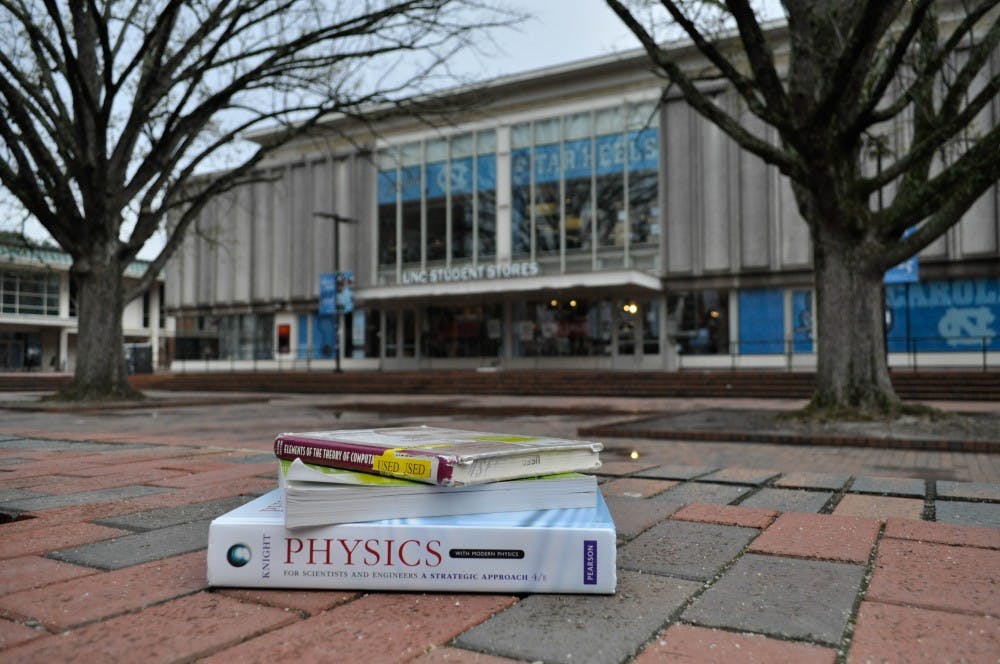CORRECTION: An earlier version of this article incorrectly stated that NCPIRG met with representatives from the bookstore Monday to discuss what the store plans to do and how the program might impact UNC. The Undergraduate Student Government Affordability Committee met with these representatives. Additionally, the Inclusive Access model would not function as an automatic billing system at UNC as the University has selected an opt-in program. The article also incorrectly stated that it is Pearson's Inclusive Access Model. The model is a combination of several top publishers.
In light of attempts to have UNC Student Stores adopt an Inclusive Access model for access codes and textbook purchases, some students and faculty have made it known that they don’t welcome the program’s potential implementation.
Inclusive Access is a distribution model where top publishers can "work with an institution to provide all of the content in a digital format, on or before the first day of class, at the best price in the market,” said Tom Malek, vice president and head of Channel Partnerships, Higher Education North America at Pearson Education.
The model functions as an automatic billing system. However, UNC students will be required to approve any charges because UNC has selected an opt-in program.
However, the UNC chapter of the North Carolina Public Interest Research Group has been vocal about its disapproval of Pearson’s program. Junior Nick Sengstaken, the vice chairperson of UNC’s NCPIRG chapter and co-chairperson of the Undergraduate Student Government’s Affordability Committee, said the group believes adopting the new model would be problematic for both students and professors who deserve a say in the decision-making process.
“We think the student body and the faculty deserve a chance to weigh in on this because it’s going to have such a big impact on their education and their ability to teach,” Sengstaken said.
Sengstaken said he thinks that the program would be problematic for low-income students who would have a harder time employing cost-saving methods, like renting or selling used books. He said the model would increase economic inequity in accessing materials, and the lessened economic flexibility could also hurt students academically.
“I, like many other students, am putting myself through college and can’t afford the exorbitant amounts charged for access codes, especially in addition to other textbooks,” first-year Emily Sallade said in an NCPIRG survey. “I rely on used and rental books, and the access code programs are draining my bank account quickly.”
Professors would also be impacted, as they would be restricted to using mostly Pearson textbooks, Sengstaken said, which would limit their ability to use Open Educational Resources, or peer-reviewed materials that are free for students and faculty to use.



